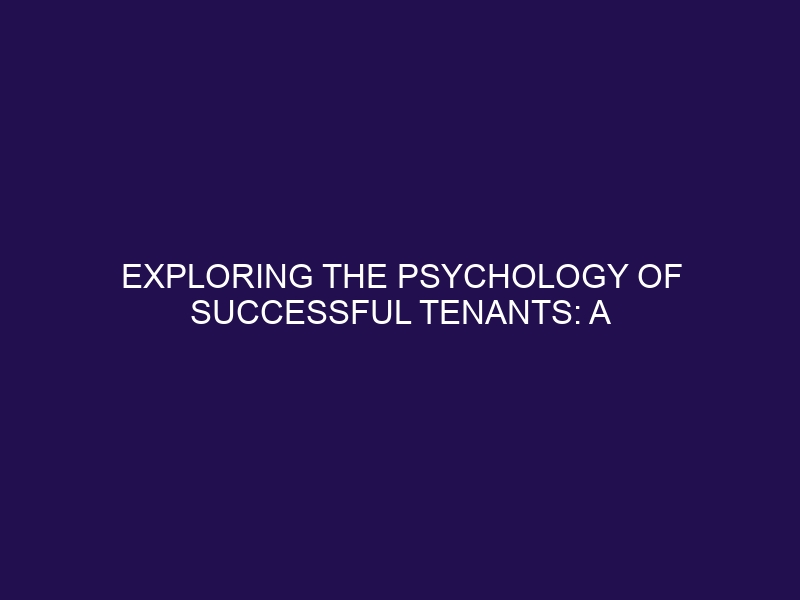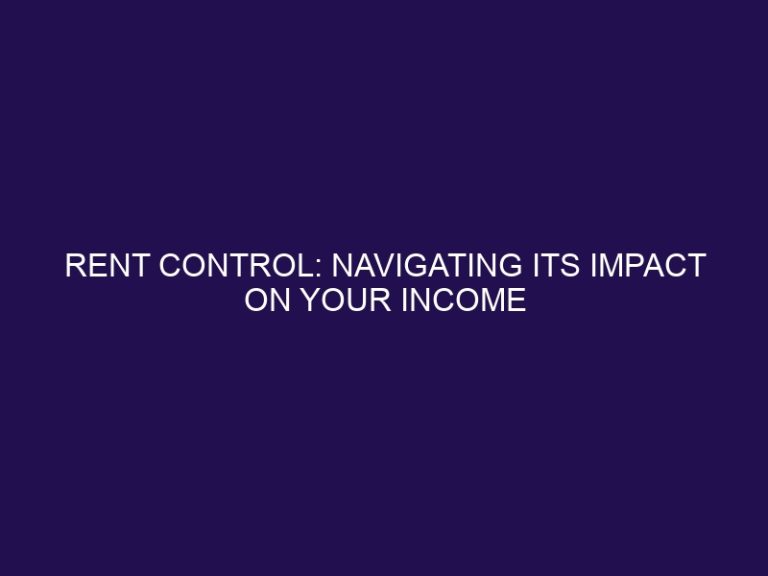Exploring the Psychology of Successful Tenants: A Guide for Landlords
In today’s competitive real estate market, understanding the psychology of successful tenants is essential for property owners and managers. This comprehensive article delves into the intricacies of tenant behavior, focusing on the power of positive thinking, incorporating feedback for success, and understanding various tenant personality types. By exploring these key aspects, property professionals can gain valuable insights into what motivates and drives successful tenants, ultimately leading to more harmonious and prosperous landlord-tenant relationships.
From the extroverted tenant who thrives on social interactions to the introverted tenant who seeks solitude, this article offers a deep understanding of tenant psychology, providing actionable strategies for cultivating positive and mutually beneficial rental experiences. Whether you’re a seasoned landlord or new to the property management industry, this article is a must-read for anyone seeking to enhance their understanding of successful tenant psychology.
Key Takeaways:
Understanding the Psychology of Successful Tenants
Understanding the psychology of successful tenants is essential for landlords and property managers to foster positive tenant-landlord relationships and ensure the success of their real estate business.
Tenant psychology plays a significant role in shaping their behavior and attitudes towards their rental property. Factors such as communication, responsiveness to maintenance requests, and the overall living environment can greatly influence a tenant’s satisfaction and willingness to renew their lease. By understanding the needs and preferences of tenants, landlords can create a more conducive living environment, reduce tenant turnover, and maximize the profitability of their rental properties.
The Power of Positive Thinking
The power of positive thinking plays a pivotal role in shaping the mindset of successful tenants, creating a feedback loop that enhances their competence and fosters overall success in their rental experience.
When tenants adopt a positive outlook, it impacts their behavior, decision-making, and interactions within the rental community. This fosters a supportive atmosphere, leading to improved communication and collaboration among tenants. Furthermore, positive thinking contributes to a sense of enablement, as tenants are more likely to proactively address challenges and seek solutions, thereby reducing property management workload.
By leveraging strategies such as encouraging gratitude, providing resources for stress management, and fostering a culture of optimism, property managers can create an environment where positive thinking thrives, ultimately enhancing tenant satisfaction and retention rates.
Incorporating Feedback for Success
Incorporating feedback from tenants is a crucial aspect of successful property management, as it creates a positive feedback loop, informs renovation strategies, and ensures compliance with regulations for the benefit of the tenant community.
Tenant feedback serves as a valuable source of information for property managers, offering insights into the lived experience within the properties they oversee. By actively engaging with tenant feedback, property managers can gain a deeper understanding of the specific needs and preferences of their tenants, enabling them to make more informed decisions about property improvements and renovations.
Tenant feedback plays a pivotal role in guiding renovation strategies. Understanding the aspects of the property that are most important to tenants allows property managers to prioritize renovations that will have the greatest impact on tenant satisfaction. This targeted approach not only enhances tenant experience but also contributes to the overall value of the property.
Incorporating tenant feedback is essential for ensuring compliance with regulations. By listening to tenants’ concerns and suggestions, property managers can address potential issues promptly, fostering a safe and compliant living environment for the tenants. Effective communication channels and responsive feedback mechanisms are critical in this regard, enabling tenants to voice their concerns and providing property managers with the opportunity to address them proactively.
Understanding Tenant Personality Types
Understanding the diverse personality types of tenants is essential for creating a harmonious community within the building, as it allows property managers to cater to individual preferences and foster a cohesive tenant community.
By recognizing and accommodating varied personality types, property managers can tailor their communication and engagement strategies, thus enhancing tenant satisfaction and retention.
For example, introverted tenants may appreciate quiet communal spaces and thoughtful communication styles, while extroverted individuals may thrive in vibrant common areas and frequent social events.
By embracing this diversity, property managers can foster a welcoming environment where all tenants feel valued and understood.
The Extroverted Tenant
Extroverted tenants thrive on social interaction and community engagement, making open communication and communal activities essential for creating a vibrant and inclusive living environment.
They often seek out opportunities to connect with their neighbors, whether through organized events, shared spaces, or community initiatives. Their need for social interaction can fuel a lively atmosphere within the residential community, inspiring others to come together and form lasting bonds.
To promote communal activities, property managers can consider creating designated gathering areas that encourage socialization, such as outdoor seating areas, community gardens, or common rooms. Hosting regular social events like barbecues, game nights, or book clubs can provide extroverted tenants with ample opportunities to engage with fellow residents and foster a sense of belonging.
The Introverted Tenant
Introverted tenants value privacy and personal space, requiring property managers to create a community environment that respects their need for solitude while still fostering a sense of belonging and community.
Understanding the characteristics of introverted individuals is crucial in fostering a harmonious living environment. These tenants often prefer smaller, intimate gatherings over large social events, so property managers can organize:
- quiet communal spaces with comfortable seating,
- engaging solitary activities such as reading nooks or designated quiet areas,
- establish clearly communicated quiet hours to honor their need for peace and quiet.
By accommodating these preferences, property managers can ensure that their introverted tenants feel valued and included in the community, creating a welcoming atmosphere for all.
Frequently Asked Questions
What is the psychology behind successful tenants?
Successful tenants possess certain psychological traits and behaviors that contribute to their ability to maintain a positive relationship with their landlord, pay rent on time, and maintain a well-kept rental property.
How important is communication in understanding the psychology of successful tenants?
Effective communication is crucial in understanding the psychology of successful tenants. By openly communicating with their landlord and addressing any concerns or issues promptly, successful tenants demonstrate their responsibility and respect for the landlord-tenant relationship.
What role does responsibility play in the psychology of successful tenants?
Responsible tenants take ownership of their actions and follow through on their commitments. This includes paying rent on time, adhering to lease agreements, and properly maintaining the rental property. This sense of responsibility is a key factor in the psychology of successful tenants.
Can understanding the psychology of successful tenants help landlords find better tenants?
Yes, understanding the psychology of successful tenants can help landlords attract and retain responsible and reliable tenants. By recognizing the qualities and behaviors of successful tenants, landlords can better screen potential tenants and make informed decisions.
How can landlords foster a positive relationship with successful tenants?
To foster a positive relationship with successful tenants, landlords should communicate clearly and consistently, address maintenance issues promptly, and show respect for their tenants’ privacy and space. By creating a positive and respectful environment, landlords can build trust and maintain a strong relationship with their tenants.
In what ways can landlords support the psychological well-being of their tenants?
Landlords can support their tenants’ psychological well-being by providing a safe and comfortable living space, being understanding and empathetic towards any personal struggles, and addressing any concerns or issues in a respectful and timely manner. This can help tenants feel valued and cared for, leading to a positive rental experience for both parties.







